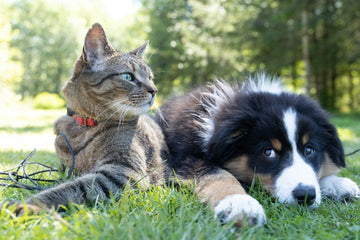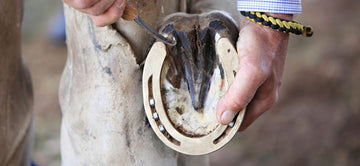Owning a pet is a lifelong commitment that requires time, effort, and knowledge.
From choosing the right pet to understanding their dietary, health, and behavioral needs, responsible pet ownership is crucial for ensuring a pet’s happiness and longevity.
This guide answers common pet questions and essential pet-related questions to help both new and experienced pet owners provide the best care possible.
Choosing the Right Pet
Factors to Consider Before Getting a Pet
Selecting a pet that matches your lifestyle, living situation, and budget is essential for responsible pet ownership.
-
Consider your lifestyle and schedule – Busy individuals may prefer low-maintenance pets like fish or reptiles, while dogs and cats require daily care, exercise, and attention.
-
Assess time commitment – Dogs need regular walks, training, and companionship, while cats are more independent but still require social interaction and mental stimulation.
-
Research different pet species – Some pets, such as birds and rabbits, have specific needs and can live longer than expected.
-
Evaluate your living space – If you live in an apartment, smaller pets like cats, hamsters, or small dog breeds may be more suitable. Large dog breeds may require more space to roam and exercise.
-
Think about budget and pet expenses – Pets require food, veterinary care, grooming, and supplies, and costs can add up. Consider pet insurance to help cover unexpected expenses.
Pet Care and Nutrition
Feeding Your Pet Properly
Proper nutrition plays a vital role in your pet's overall well-being. Each pet has specific dietary requirements that need to be met for optimal health.
-
Choose a well-balanced diet – Consult with your veterinarian to determine the best food for your pet based on their species, breed, size, and activity level.
-
Provide fresh water at all times – Hydration is crucial, especially for dogs, cats, and small animals prone to dehydration.
-
Avoid overfeeding – Obesity is a leading cause of health issues in pets, leading to joint problems, diabetes, and heart disease.
-
Consider nutritional supplements – Some pets may benefit from omega-3 fatty acids, probiotics, or vitamins, but always consult with a veterinarian before adding supplements.
Common Pet Health Issues
Recognizing and Preventing Illness
Being aware of early signs of illness can help prevent severe health problems.
-
Watch for signs of illness – Vomiting, diarrhea, lethargy, loss of appetite, or excessive scratching may indicate an underlying health issue.
-
Schedule regular vet visits – Annual or biannual check-ups with a pet doctor ensure your pet stays up-to-date on vaccinations and preventative treatments.
-
Monitor breed-specific health risks – Some dog and cat breeds are prone to hereditary conditions, such as hip dysplasia or respiratory issues.
-
Dental care is crucial – Periodontal disease is one of the most common health concerns in pets. Regular teeth brushing, dental chews, and vet cleanings can prevent oral infections.
-
Prevent parasites – Fleas, ticks, and heartworms can cause serious health issues in pets. Use vet-approved preventative medications year-round.
Why Do Dogs Eat Grass?
Dogs eating grass is a common phenomenon that has puzzled many pet owners. While there is no definitive answer, several theories attempt to explain this behavior. Some possible reasons why dogs eat grass include:
-
Dietary needs: Dogs may eat grass to supplement their diet with fiber, vitamins, or minerals.
-
Self-treatment: Dogs may eat grass to alleviate stomach issues, such as nausea or digestive problems.
-
Boredom or anxiety: Dogs may eat grass due to boredom or anxiety, as a way to cope with stress or lack of stimulation.
-
Instinctual behavior: In the wild, dogs would naturally eat grass and other plants as part of their omnivorous diet.
It’s essential to note that eating grass is not typically harmful to dogs, but excessive consumption may indicate an underlying health issue. If you’re concerned about your dog’s grass-eating habits, consult with your vet to rule out any potential health problems.
Pet Behavior and Training
Training for a Well-Behaved Pet
Proper training and socialization help pet parents ensure their pets become well-adjusted and obedient.
-
Set a routine – Pets thrive on structure, so establish consistent meal times, potty breaks, and training sessions.
-
Use positive reinforcement – Reward good behavior with treats, praise, and playtime to encourage learning.
-
Address excessive barking – Dogs may bark due to boredom, fear, or excitement. Consult a trainer or behaviorist if barking becomes problematic.
-
Enroll in obedience training – Puppy classes or obedience schools help with behavioral issues and socialization.
Pet Health Concerns
Signs Your Pet May Be Unwell
Pets cannot communicate verbally, so owners need to recognize health warning signs.
-
Limping or avoiding movement – Could indicate arthritis, injury, or pain.
-
Decreased appetite – A loss of appetite can signal dental disease, infections, or digestive issues. Regularly check your pet's teeth for signs of dental problems.
-
Stress and anxiety – Behavioral changes, excessive grooming, or withdrawal may indicate anxiety or depression.
-
Regular checkups are essential – Schedule veterinary visits to address concerns before they worsen.
Pet Safety and Well-being
Creating a Safe Environment
Keeping your pet safe and comfortable is crucial for their long-term health and happiness.
-
Secure hazardous items – Keep cleaning products, human food, and electrical cords out of reach.
-
Provide a comfortable living space – Ensure your pet has a safe, quiet place to rest and sleep.
-
Consider space for larger pets – Larger pets require more room to roam and exercise compared to smaller breeds, so make sure your home can accommodate their needs.
-
Keep identification updated – Microchips, ID tags, and collars can help lost pets return home safely.
-
Be prepared for emergencies – Keep a pet first-aid kit and emergency vet contacts handy.
Pet Safety and Emergency Preparedness
As a responsible pet owner, it’s crucial to be prepared for emergencies and take steps to ensure your pet’s safety. Here are some tips:
-
Create a pet emergency kit: Assemble a kit with essential items, such as food, water, medication, and a first-aid kit.
-
Keep important phone numbers handy: Save your vet’s contact information, as well as the ASPCA’s Animal Poison Control Center (APCC) hotline (888-426-4435).
-
Know basic pet first aid: Learn how to perform CPR, treat wounds, and recognize signs of illness or injury.
-
Prepare for natural disasters: Develop a plan for evacuating your pet in case of a natural disaster, and keep a pet carrier or crate easily accessible.
By being prepared and taking proactive steps, you can help ensure your pet’s safety and well-being in emergency situations.
Pet Hygiene and Grooming
Keeping Your Pet Clean and Healthy
Proper grooming helps prevent health issues and keeps your pet comfortable.
-
Brush your pet regularly – Reduces shedding, prevents matting, and promotes healthy skin.
-
Bathe when necessary – Dogs may need monthly baths, while cats usually self-groom.
-
Trim nails regularly – Long nails can cause discomfort and walking issues.
-
Schedule professional grooming – Some pets, such as Poodles and Persian cats, require routine professional grooming.
-
Groom small mammals – Regular grooming is important for the health and comfort of small mammals like guinea pigs and rabbits.
Pet Care and Responsibility
Understanding the Commitment of Pet Ownership
Owning a pet is a long-term commitment that requires time, patience, and financial responsibility.
-
Ensure you have the time and resources – Pets require daily care, socialization, and training.
-
Know your local pet laws – Follow regulations on vaccinations, licensing, and pet ownership rules.
-
Consider pet insurance – Unexpected medical expenses can arise; pet insurance helps cover costs.
-
Be financially prepared – Budget for food, medical care, grooming, and pet supplies.
-
Understand specific care requirements – Some pets, like saltwater fish, require specialized habitats and can be more expensive to maintain.
Coping with Pet Loss
Losing a pet can be a devastating experience, and it’s essential to acknowledge the emotional impact it can have on pet owners. Here are some tips for coping with pet loss:
-
Allow yourself to grieve: It’s okay to feel sad, angry, or overwhelmed after losing a pet. Give yourself permission to grieve and process your emotions.
-
Seek support: Reach out to friends, family, or a pet loss support group for comfort and understanding.
-
Create a memorial: Consider creating a memorial, such as a photo album or a memory box, to honor your pet’s memory.
-
Take care of yourself: Make sure to get enough rest, eat well, and engage in physical activity to help manage your emotions.
Losing a pet is never easy, but with time, patience, and support, you can navigate the healing process and find ways to celebrate your pet’s life and legacy.
Frequently Asked Questions
What are common pet-related questions?
Pet-related questions often include diet, exercise, behavior, health care, and breed-specific concerns.
Can I ask a vet pet-related questions online?
Yes, many veterinarians offer telehealth services, allowing pet owners to ask questions online or via video consultations.
What does a pet interview mean?
A pet interview typically refers to adoption screenings, where shelters assess if a pet is a good fit for a potential owner’s lifestyle.
What questions are asked in a pet interview?
Adoption centers may ask about:
-
Your daily schedule and time availability for a pet
-
Previous pet ownership experience
-
Living situation (house, apartment, backyard space, etc.)
-
Financial readiness to cover pet expenses
Top Pet Questions: Essential Insights for Every Pet Owner Conclusion
Being a responsible pet owner means understanding and meeting your pet’s needs.
Whether you’re choosing a pet, managing health concerns, training, or providing a safe environment, these essential insights ensure that your pet enjoys a happy, healthy, and fulfilling life.
By staying informed and proactive, you can strengthen the bond with your pet and give them the best life possible.












